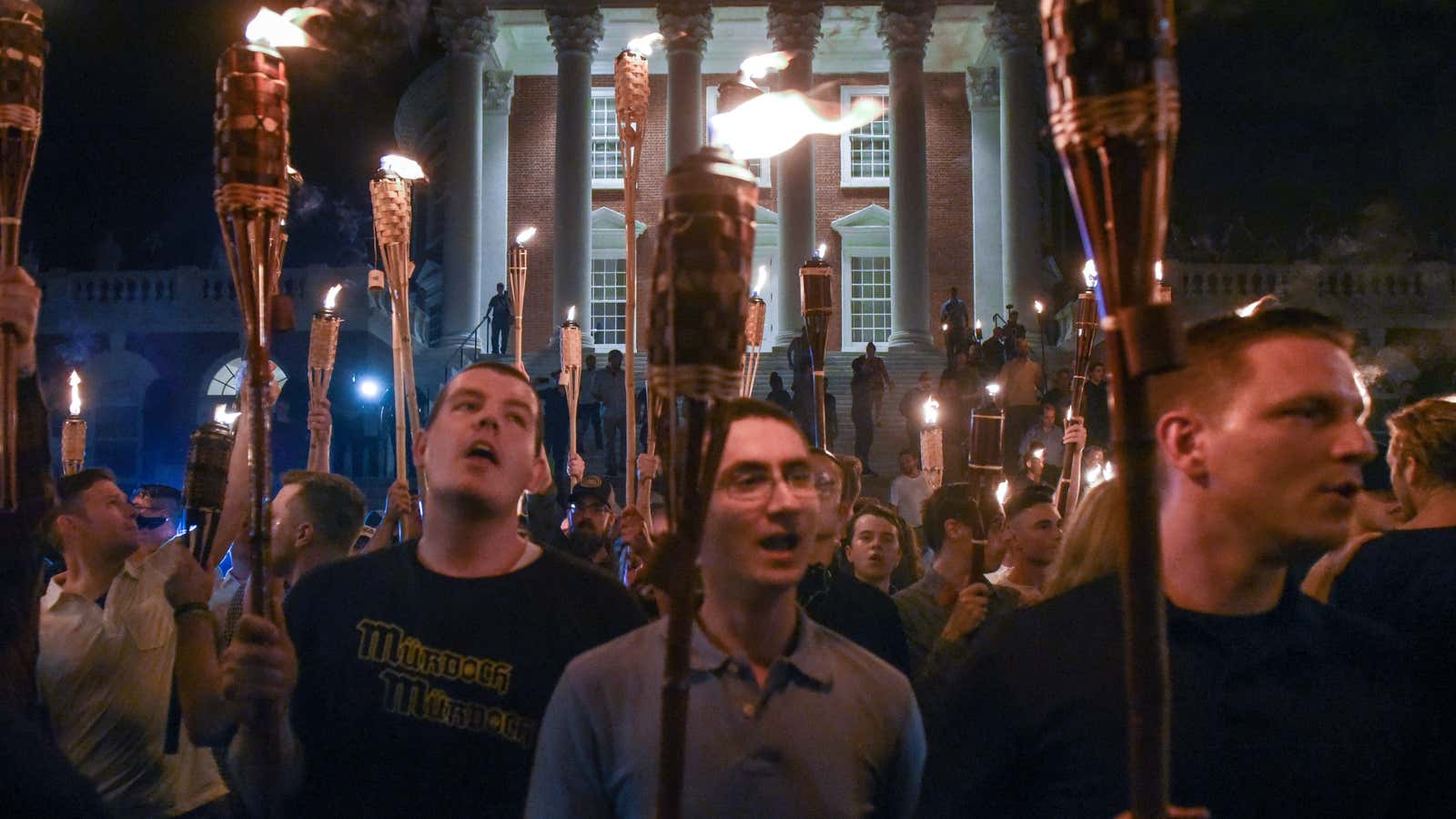US president Donald Trump claims to be surprised that anti-Semitism still exists. “This was an anti-Semitic act,” he said after the shooting that killed 11 people at a synagogue in Pittsburgh, Pennsylvania. “You wouldn’t think this would be possible in this day and age.”
Such disbelief, from a man who has long used anti-Semitic code words to fire up his base, defies credibility. It also reflects a widespread tendency to minimize the hatred that Jewish people face.
After neo-Nazis marched on Charlottesville, Virginia, last year, shouting, “Jews will not replace us,” there was an unnerving lack of condemnation from many politicians about anti-Semitism in the United States. Some ignored the chants about Jews entirely, instead focusing on those who shouted, “You will not replace us.”
In one explicit and bizarre attempt to suggest that Jews were not under attack, Kelly Stout wrote a Jezebel essay in which she criticized Jewish journalist Dana Schwartz (who’d been previously targeted by online white supremacists) for writing her own article in response to the incident, suggesting that Charlottesville wasn’t about her.
“[T]he violence in Virginia does not cry out for a response from sassy white women who know a thing or two about virgins living in their moms’ basements,” Stout wrote. Her article portrayed Schwartz as a white woman who was safe from alt-right abuse. But, as Phoebe Maltz Bovy responded in New Republic: “The neo-Nazis in Virginia made very clear that, contra Stout, they were protesting certain white women’s right to be alive.”
At the time, I heard plenty of people, both online and in person, express surprise that Nazis still hated Jews, and suggest that Jewish people weren’t the true targets of alt-right hatred. This conveniently ignores the photos of gas chambers that were sent to Jewish journalists throughout the 2016 presidential campaign and the Nazi salutes and shouts of “Hail Trump!” at an alt-right conference. To pretend that anti-Semitism isn’t a problem is to turn a blind eye to the physical assaults, vandalism, and bomb threats against Jews that have sharply increased over the past few years.
“Of course there are neo-Nazis in our time,” wrote Emma Green in The Atlantic following Charlottesville. “There are those who hate Jews in every time. It’s a hatred that easily flickers between the universal and the particular, melding with the similarly particular hatreds of blacks and immigrants and other minority groups.”
Two excuses are often given for downplaying the impact of anti-Semitism: Jews look white, and they aren’t economically disadvantaged. But, in the face of the very explicit hatred directed at Jews, denying its existence is its own form of antisemitism. As I’ve written previously, anti-Semitism is an unusual prejudice in that it portrays Jews as too superior, rather than inferior. This mindset insists that Jewish people cannot be persecuted, cannot be victims, as they are too powerful to be subject to real abuse.
Several of those who were murdered in Pittsburgh yesterday were children during the Holocaust. They’ve been targets of explicit prejudice and racial violence throughout their lives. Anyone who’s surprised by the shooting yesterday can’t have heard the many, many anti-Semitic threats. Or maybe they did hear, but just didn’t care.
